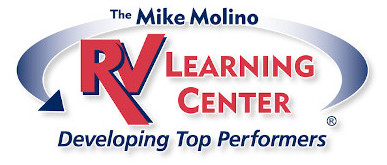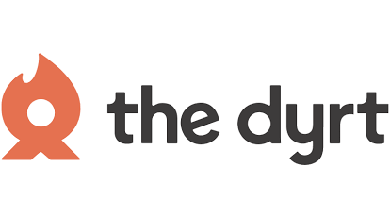Bell Camper Sales
This family-owned business keeps people coming back with its emphasis on quality service and a standout campground.
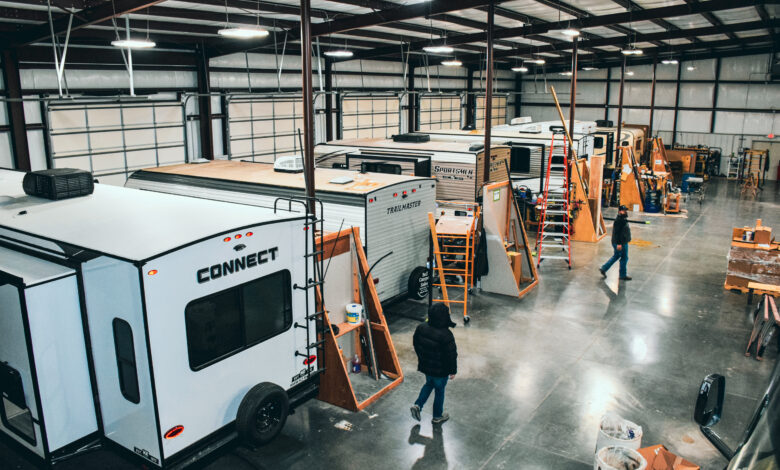
In operation for more than half a century, northeast Oklahoma’s Bell Camper Sales is the oldest RV dealership in the region, and it’s still owned by a member of the Bell family. It even offers truck campers just as Blackie Bell did when he founded the business in 1967.
Yet much has changed since the store was located on a small lot near downtown Bartlesville. Now led by grandson Lane Bell, Bell Camper Sales sits on a 50-acre site in suburban Dewey, selling everything from off-road teardrop trailers to motorhomes, and employs 29 people. There’s a 12-bay shop, an indoor showroom, a 3,000-square-foot parts department and a campground with more than 100 sites.
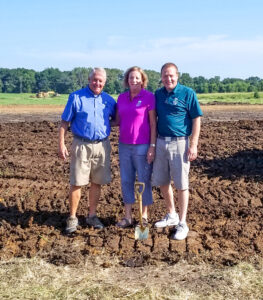
“My dad, Steve, got back involved in the business in 1986,” Bell says. “He was actually a professional musician out in Reno, Nevada. We always make the joke that I came along and ruined his and Mom’s good time out there, so they came back and started working at the dealership.”
In the early 1990s, Steve Bell moved the dealership from its original location to a larger site in Bartlesville where it remained until 2019. During that time, Lane graduated from high school and left town to get a business management degree at Oklahoma State University. Unsure if he wanted to return to the family store, he worked at two large RV dealerships in Tennessee and Texas before the Sooner State wooed him back.
It was a good thing, too, as Bell, who became sole owner of the dealership last year, brought back some needed perspective to a dealership that previously focused mainly on sales.
“I came up in parts and service,” he says. “I was a service writer and a parts manager. Being in the service department, you learn a lot about customer service. Service is the backbone. Something that surprises me still to this day is there are a lot of dealers that service is more of an afterthought. Warranty work was something you did just to help the customer out. You fixed what the problem was. Dad never actively looked for warranty work on the lot. When we get a trailer in, we do a big prep when it hits the lot to try to catch as many warranty issues as we can right off the bat.”
To Bell, parts and service definitely aren’t afterthoughts.
“That was a big shift we made. I think the RV industry is getting ready here to real quickly realize how important service is. Obviously, when sales are down, like we’ve had last year, you’ve got to have a solid service department that you can lean on a little bit,” he says. “Our service department is going gangbusters. When people aren’t buying trailers, they’re fixing them. We’ve had a good year in service.”
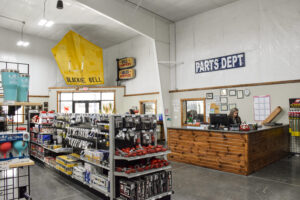
Bell points to his revenue as proof: between 20% and 30% of it comes from his parts and service departments, substantially higher than the dealership average of 10% or so.
“Sales is what makes the money, but service is what keeps people coming back. Sales gets you the first unit sold – service gets you the next three or four units sold,” he says. “If someone comes in with a trade and if the deal doesn’t get made, our service department is actively prospecting that customer. We’re going through old service contacts that we haven’t had a work order for in a while and asking them, ‘Hey, if you’ve got an extended warranty, come in and we’ll do a warranty check,’ or ‘We’ve got these specials going on’ or ‘If you ever need anything, give us a call.’ That’s something that has actually yielded some results.”
Bell has ample staff to handle the work, too, with nine technicians, three service writers and a service manager on hand to keep units moving through the shop. He’s making sure training moves to the forefront.
“We do lots of training with our techs. We send them to the manufacturer every year to get trained. We have Lippert and other vendors come in and do training here,” he says. “We’ve been talking about getting all the techs certified.”
His parts staff – which consists of a department manager and two employees – and his service writers already completed RV Learning Center certification; his service manager will get certified once the curriculum is ready.
As for compensation, Bell runs a modified flat-rate shop. Billed hours are paid at a flat rate while nonbilled hours are paid at a base rate. He’s strict about technicians billing time, too.
“Other than demos, as our techs do demos, they have very limited interface with customers. Our techs are here to bill time. Anything that pulls them off billing time, we try to keep away from,” he says.
Pre-delivery inspections, like demos, are usually handled by technicians with a few years under their belts. His most seasoned veterans, naturally, get the more extensive jobs, such as slide, roof and sidewall work. Bell doesn’t have a spray booth, but the shop can take small paint and body jobs. Chassis service beyond oil changes and the like get outsourced.
To Bell, what really makes the dealership stand out in the region known as Green Country is his well-appointed campground.
“We’ve got some spots dedicated just for deliveries. That works really well,” he says. “We all but make customers stay their first night or two in the campground just because any issues they have, things they might’ve forgotten, all that kind of stuff, allow us to get a lot of those problems dealt with upfront before they go on a trip.”
Bell’s only regret with the campground, which debuted in 2017 before the dealership made its move north two years later, has been not making it big enough when it opened.
“Last July, we added 71 sites. We opened with 30, and we were at 90% to 95% occupancy and had been for a while. We should’ve probably added on sooner,” he says. “There’s a fishing pond with a dock, there’s a pickleball court back there, we’ve got a couple of playgrounds, and there’s two dog runs and two pavilions.”
All sites, which measure 39 feet from end to end, boast 15-, 30- and 50-amp service, two sewer hookups, water, plus high-speed Wi-Fi and cable TV. There’s also a laundromat and a small store on-site with basic RV supplies. Bell is especially pleased with the facility’s income as sales have waned.
“We have more monthly rentals than we have anything else. The average stay at our campground is eight to nine months. We have some people who have been with us for years. We opened up in March 2017, and one tenant moved in with us in June 2017. He’s been here ever since,” Bell says.
Taken with the concept, Bell has been scouting Green Country and beyond for other dealership-campground locations.
“I’d love to have a second location, probably in Tulsa. There’s been several other places I’ve looked at, maybe Stillwater, maybe Enid,” he says. “Stillwater and Enid would be something like this – not great big, but would service a broad area around them. If we went to Tulsa, we would focus on the Tulsa market. That is definitely in the cards.”
He’s considered both buying or building stand-alone campgrounds.
“I haven’t quite pulled the trigger on either one yet. I’d like to. I’ve been talking to the Corps of Engineers about redoing one of their old campgrounds that they defunded back a long time ago, but the red tape has been unbelievably horrible,” Bell says.
Beyond the campground, the dealership has tapped another revenue stream: a 10-unit rental fleet established last year with eight travel trailers and a pair of motorhomes.
“The main factor behind rentals was to offer more to customers in the area. Demand for rentals has picked up in the previous couple of years as RV use has become more prevalent and popular,” Bell says. “We had been getting a lot of people asking about it.”
Of the 300 units Bell sells yearly, about 15 to 20 are consignments, another good revenue source.
“A lot of times, used units are hard to buy from a customer,” he says. “That’s why we do a fair amount of consignments. I don’t want to take that risk on by putting too much in used inventory. There’s a lot of dealers out there right now getting ready to get bit hard by having too much in used inventory.”
Bell first negotiates a value that a consignment customer would take for a unit and then advertises a price higher than that to cover the dealership’s PDI and other costs. It’s better than having a lot of money in used units that may not turn quickly.
Usually, the dealership keeps 90 to 100 units on the lot and anywhere from 10 to 20 are used. The bread and butter? Midsize travel trailers – Bell offers Rockwood, KZ, Palomino’s SolAire and Real-Lite models, plus Clipper teardrops, Shasta travel trailers and Phoenix fifth wheels.

With increasing interest rates, Bell is still debating whether getting back into motorhomes – he recently took on Coachmen Pursuits and Cross Trails – was a good decision.
“Higher ticket-priced units have not been moving well,” he says. “The industry as a whole has shifted toward entry-level products. That is not uncharacteristic of a high-interest rate economy. When you’re talking $30,000 at 8% is kind of so-so. When you’re talking $120,000 at 8%, when you look at what you’re going to pay in interest, it gets a lot harder to swallow. The high-end fifth wheels are in the same market. They’re down right now. Anything over $60,000 has been harder to move last year without a doubt.”
Besides lending rates, Bell also blames oversaturation; with so many units sold during COVID to a finite amount of customers, there was no direction to go but down.
Regardless, he’s bullish on RVs and enjoys giving back to the industry. In addition to being part of Bell Camper Sales, he sits on the RV Dealers Association’s board of directors, represents Oklahoma as a state delegate and sits on the convention committee.
“I’ve been going to RVDA since I came back. RVDA is super vital just from the learning aspect, for not only me but everybody else at the dealership, too. I always take my F&I and service managers, we might take so more people,” he says. “I like going just to talk to other dealers. It’s kind of like a 20 Group meeting.”
Bell also believes independent stores like his will survive despite the whirlwind of corporate acquisitions in the RV industry today.
“I do think that there will always be some mom-and-pops out there,” he says. “I think it’s more of a level of service. There’s going to be people who want to buy on price and price alone. The person shopping on price alone very well might buy from Camping World or Blue Compass, but many of the second- and third-time buyers are going to realize that there’s a lot of things that they can get at a smaller store that they won’t be able to get at a larger chain.”
